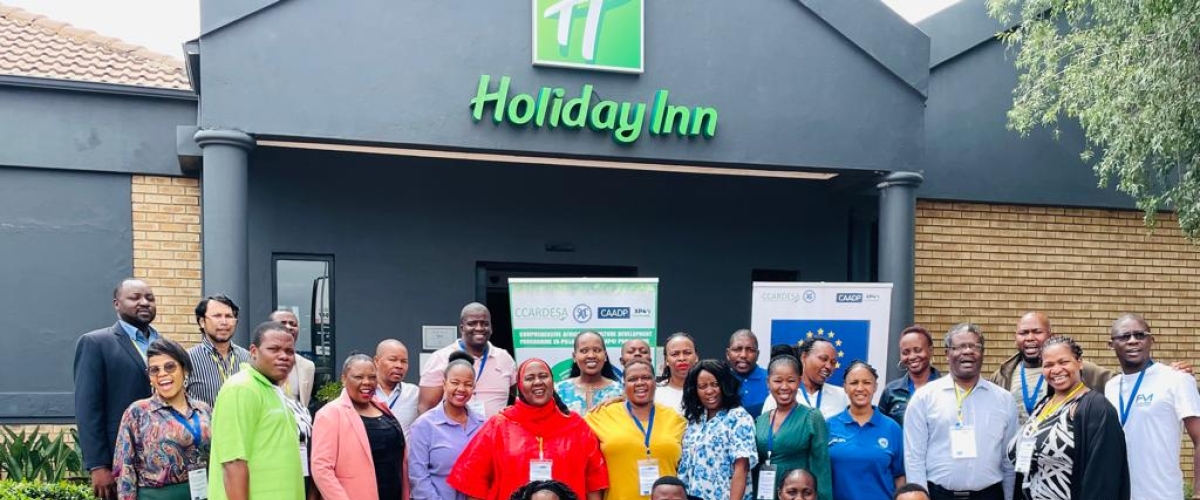
By Lorato Kgakatsi
Disability is not inability; consented efforts towards empowering disability will help to fulfill our goal of a food-secure continent.
The Centre for Coordination of Agricultural Research and Development for Southern Africa (CCARDESA), continues to make decisive efforts in integrating disability into development initiatives. CCARDESA has recently developed a Gender Equality and Social Inclusion Policy (GESI) to address disparities that women, youth, and persons with disabilities face in the agricultural sector. Amongst other areas that CCARDESA seeks to strengthen capacity on, is the area of Knowledge Management.
The world is moving at a rapid pace, and people are always trying to catch up in order to survive. Agriculture has proven to be a highly volatile industry due to climate change. Nations are starting to feel the impact of climate change on the economy as more and more people fall below the poverty line. That is why it is imperative that Development agencies like CCARDESA have to be at the helm of mitigation strategies that could reduce the negative impact. Knowledge deficiency has been identified as a challenge that people living with disability face.
Moreover it has been reported that the agricultural sector is discriminatory towards this group. The identified gaps speak to social and economic exclusion of disability, thereby rendering this group incapacitated. The danger in this is that agriculture remains the main source of income for most African countries, so the exclusion of people living with disability increases the financial vulnerability.
CCARDESA, through the CAADPXP4 program, has a responsibility to communicate policy, research, and development initiatives with its partners. CCARDESA has several communication channels that it uses to communicate with its various stakeholders, and these are Social Media, the knowledge hub, mainstream media, and workshops. CCARDESA recognizes the importance of not only having these communication channels but is more concerned with the relevance, accuracy, and impact of the knowledge produced and shared. That is why CCARDESA conducts several stakeholder engagements to determine whether the knowledge shared meets the requirements of its stakeholders. As already mentioned CCARDESA is decisive about social inclusion and representation.
CCARDESA recently held a knowledge products and success stories validation workshop in Johannesburg, South Africa, to engage with content producers, representatives of government, media practitioners, and disability activists to validate videos and success stories that were produced for CCARDESA by consultants. In this workshop, a lot was shared, and I learned about disability and effective means of communication. That is an effort towards closing the gap of information deficiency among people living with a disability. Active participation of people living with disability in decision-making platforms will change the way people view disability. It was concluded at the workshop that all videos will have subtitles that are clear and easy to read for those with hearing impairments (deaf).
Mrs. Lorato Kgakatsi is an Information and Public Relations Officer at the Ministry of Agriculture in Botswana. Ms. Kgakatsi is also a disability activist working with several disability groups.





